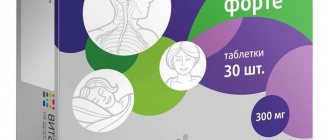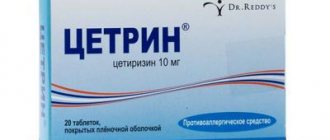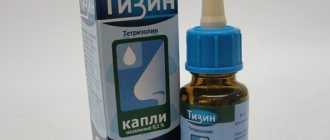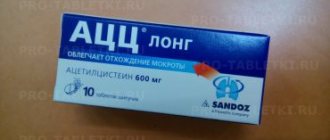Published 05/29/2020 · Comments: · Reading time: 8 min · Views: Post Views: 597
The cause of functional digestive disorders is often the excessive growth of pathogenic and opportunistic flora in the intestines. The active activity of harmful bacteria can manifest itself as dyspeptic symptoms (pain, bloating, diarrhea or constipation). Pathogenic microbes feel good in the gastrointestinal tract with chronic inflammatory processes, the presence of ulcerative or erosive lesions, and constant poor nutrition. To eliminate the cause of the illness, you may need Alpha Normix, a targeted antibiotic.
Release form and composition
- Film-coated tablets: round, biconvex, pink (12 pieces in a blister, 1 blister in a cardboard box);
- Granules for the preparation of a suspension for oral administration: orange in color, with the smell and taste of cherries (wild cherries) (in dark glass bottles, closed with an aluminum screw cap, 1 bottle complete with a measuring cup in a cardboard box).
The active substance is rifaximin with a polymorphic alpha structure:
- 1 tablet – 200 mg;
- 1 bottle of granules (60 ml) – 1200 mg, i.e. in 1 ml of suspension – 20 mg.
Additional components of the tablets:
- Excipients: glyceryl palmitostearate, sodium carboxymethyl starch, microcrystalline cellulose, talc, colloidal silicon dioxide;
- Shell composition: titanium dioxide (E171), propylene glycol, disodium edetate, hypromellose, red iron oxide (E 172).
Auxiliary components of granules: sodium carmellose, sucrose, kaolin, pectin, microcrystalline cellulose, sodium benzoate, sodium saccharinate, cherry flavor (wild cherry).
Indications for use
Alpha Normix is a drug for the treatment of gastrointestinal infections caused by microorganisms sensitive to rifaximin, including:
- Traveler's diarrhea;
- Chronic intestinal inflammation;
- Syndrome of excessive growth of microorganisms in the intestines;
- Symptomatic uncomplicated diverticular disease of the colon;
- Acute gastrointestinal infections;
- Hepatic encephalopathy.
Alpha Normix is also used to prevent infectious complications during colorectal surgery.
pharmachologic effect
Rifaximin is a broad-spectrum antibiotic from the rifamycin group. Like other representatives of this group, it irreversibly binds the beta subunits of the bacterial enzyme DNA-dependent RNA polymerase and, therefore, inhibits the synthesis of RNA and bacterial proteins.
As a result of irreversible binding to the enzyme, rifaximin exhibits bactericidal properties against sensitive bacteria. The drug has a wide spectrum of antimicrobial activity, including most gram-negative and gram-positive, aerobic and anaerobic bacteria.
The broad antibacterial spectrum of rifaximin helps reduce the pathogenic intestinal bacterial load, which causes some pathological conditions.
The drug reduces:
- the formation by bacteria of ammonia and other toxic compounds, which in the case of severe liver disease, accompanied by a violation of the detoxification process, play a role in the pathogenesis and clinical manifestations of hepatic encephalopathy;
- increased proliferation of bacteria in intestinal microbial overgrowth syndrome;
- the presence of bacteria in the colon diverticulum that may be involved in inflammation in and around the diverticular sac and may play a key role in the development of symptoms and complications of diverticular disease;
- the intensity of the antigenic stimulus, which, in the presence of genetically determined defects in mucosal immunoregulation and/or protective function, can initiate or constantly maintain chronic intestinal inflammation;
- risk of infectious complications during colorectal surgery.
Contraindications
- Children under 12 years of age;
- Pregnancy and lactation period;
- Intestinal obstruction, incl. partial;
- Diarrhea accompanied by fever and loose, bloody stools;
- Severe ulcerative lesions of the intestines;
- Impaired absorption of glucose-galactose, hereditary fructose intolerance, sucrase-isomaltase deficiency (for granules);
- Hypersensitivity to the components of the drug.
Carefully:
- Kidney failure;
- Use of oral contraceptives.
Directions for use and dosage
Alpha Normix should be taken orally with plenty of water (200 ml). Eating does not affect the effectiveness of the drug.
A suspension is prepared from the granules. To do this, add water to the bottle up to the mark and shake well. If necessary, add a little more water until the suspension level reaches 60 mg. The drug should be shaken well before taking. For ease of dosing, the kit includes a measuring cup.
Recommended dosages depending on indication:
- Diarrhea: 1 tablet or 10 ml suspension every 6 hours;
- Bacterial overgrowth syndrome: 2 tablets. every 8-12 hours;
- Hepatic encephalopathy: 2 tablets. or 20 ml suspension. every 8 hours;
- Chronic inflammatory bowel diseases, symptomatic uncomplicated diverticulosis: 1-2 tablets. or 10-20 ml of suspension. every 8-12 hours.
In some cases, the doctor may change the dose and/or frequency of administration.
For travelers' diarrhea, the duration of treatment should not exceed 3 days, in other cases - 7 days. If necessary, a second course of treatment is carried out at intervals of 20-40 days.
To prevent postoperative complications during colorectal surgery, 2 tablets or 20 ml of suspension are prescribed every 12 hours for 3 days before surgery.
Cheap analogues of Alpha Normix
Alpha Normix can be replaced with the following drugs:
- Nifuroxazide;
- Phthalazole;
- Enterofuril;
- Stopdiar;
- Sulgin;
- Sangviritrin.
Nifuroxazidum (Nifuroxazide) is the main analogue of the drug Alpha Normix, an antimicrobial drug that effectively affects intestinal infections. Belongs to the group of nitrofurans. The main active ingredient is nitroxazide, auxiliary ingredients: cellulose, lactose, calcium stearate, povidone, yellow iron oxide, indigo carmite. The medicine has a blocking effect on microorganisms. Due to this, cellular respiration is reduced, and tricarboxylic acids change the cycle. This further leads to a reduction in the release of toxins produced by pathogenic microorganisms. When taking daily doses, a bactericidal effect occurs. It is excreted from the body along with feces.
Phthalazolum (Phthalazol) is an effective antimicrobial drug with a broad spectrum of action. It affects pathogens of intestinal infections in the intestinal lumen and destroys them. It is characterized by a pronounced bacteriostatic effect, stopping the growth and reproduction of microorganisms. Blocks the cellular process of synthesis of factors for enlargement and proliferation of bacterial cells.
Prescribed to patients after surgery, for gastroenteritis, colitis, dysentery and other diseases.
Enterofuryl (Enterofuril) is another analogue of Alpha Normix tablets. It contains the active substance: nifuroxazide. The medicine is an antimicrobial drug with a wide spectrum of influence, but it is not one of those drugs that have a systemic effect. Used in the treatment of diarrhea of infectious etiology. The medicine Enterofuril is not prescribed for diarrhea, if the presence of helminthic infestation is detected.
The medicine can be used in the treatment of acute and chronic diarrhea of unknown etiology. The drug does not enter the systemic bloodstream or into mother's milk during lactation, therefore it is prescribed, if necessary, to nursing mothers, as well as pregnant women.
Stopdiar (Stopdiar) is used in the treatment of intestinal infections, having antidiarrheal, anti-inflammatory, antimicrobial properties. It is used to treat not only adults, but also children over six years of age. After taking the tablets, nifuroxazide does not leave the digestive tract. Thus, a high concentration of the active component is created in the intestines, after which the therapeutic effect quickly occurs.
Sulgin (Sulgin). It has a bacteriostatic effect on microorganisms that cause intestinal infections. Seven percent of the drug, which is a small fraction, penetrates the circulatory system and is subsequently excreted through the urine.
Sulgin is prescribed to patients with an established diagnosis of diseases:
- acute diarrhea due to shigellosis;
- chronic diarrhea during exacerbation;
- gastroenterocolitis, chronic or acute;
- after surgery of any kind to prevent infectious diseases;
- Typhoid fever bacilli detected (after three examinations).
Sulgin differs from previous drugs in its mechanism of action.
Sanguiritrin (Sangviritrin) is a medicine with an antiseptic and disinfectant effect. A distinctive feature of this drug is its plant origin. The preparation is based on components of two types of malea grass: heart-shaped and small-fruited.
As a prophylactic agent, Sangviritrin is prescribed to newborns to prevent purulent-inflammatory skin diseases and to surgical patients to prevent wound infections.
Sangviritrin has a wide range of uses:
- prescribed to newborns with purulent-inflammatory skin diseases;
- for people who have undergone surgery - as a prophylactic anti-infective agent;
- for skin diseases, the presence of a fungal infection;
- for stomatitis, periodontitis, etc. - in dentistry;
- sore throat, middle ear disease is the reason for prescribing this medicine;
- vaginitis, cervical erosion - in gynecology;
- various diseases - in dermatology.
All these and other analogues are cheaper than Alpha Normix, but their therapeutic effect is not inferior to Normix, so specialists can, at their discretion, prescribe drugs for the treatment of identical diseases.
Side effects
- From the central nervous system: often (>1/100 - <1/10) - headache, dizziness; uncommon (>1/1000 - <1/100) - headache in the sinuses, migraine, drowsiness, paresthesia, hypoesthesia; frequency unknown – agitation, presyncope;
- Mental disorders: infrequently – insomnia, depressed mood, nervousness, pathological dreams;
- From the gastrointestinal tract and liver: often - the urge to defecate, diarrhea, constipation, tenesmus, abdominal pain, flatulence, bloating, nausea, vomiting; uncommon – dry lips, ascites, pain in the upper abdomen, ageusia, mucus and blood in the stool, impaired gastrointestinal motility, dyspepsia, “hard” stools, increased aspartate aminotransferase activity; frequency unknown - heartburn, abnormal liver function tests;
- From the skin and subcutaneous fat: infrequently - sunburn, rash; frequency unknown - exfoliative dermatitis, allergic dermatitis, eczema, erythematous rash, purpura, erythema of the palms, urticaria, itching, erythema, angioedema, genital itching;
- Metabolic disorders: infrequently – dehydration, loss of appetite;
- From the immune system: unknown - hypersensitivity, laryngeal edema, anaphylactic reactions, anaphylactic shock;
- From the cardiovascular system: infrequently - increased blood pressure, flushing of the face, palpitations;
- From the musculoskeletal system: uncommon – myalgia, muscle weakness, back pain, neck pain, muscle spasm;
- From the urinary system: infrequently - polyuria, glucosuria, pollakiuria, proteinuria, hematuria;
- From the side of the organ of vision: infrequently – diplopia;
- From the blood: infrequently - neutropenia, monocytosis, lymphocytosis; unknown – thrombocytopenia;
- From the reproductive system: infrequently – polymenorrhea;
- From the respiratory system: infrequently - dry throat, cough, pain in the oropharynx, rhinorrhea, nasal congestion, shortness of breath;
- From the inner ear: infrequently - systemic dizziness, ear pain;
- Infections: uncommon - pharyngitis, nasopharyngitis, candidiasis, upper respiratory tract infections, herpes simplex; unknown – clostridial infection;
- Laboratory tests: change in INR (international normalized ratio);
- General symptoms: often – fever; uncommon – chills, flu-like symptoms, cold sweat, fatigue, asthenia, facial swelling, peripheral edema, hyperhidrosis, pain and discomfort of undetermined localization.
special instructions
According to clinical data, Alpha Normix is ineffective against intestinal infections caused by Shigella spp., Salmonella spp., Campylobacter jejuni, which cause fever, diarrhea and bloody stool.
If symptoms of diarrhea worsen or persist within 48 hours, Alfa Normix should be discontinued and other antibacterial therapy should be prescribed. The same applies to cases of superinfection caused by microorganisms insensitive to rifaximin.
As with the use of almost all other antibacterial agents, diarrhea associated with Clostridium difficile may develop during treatment with Alpha Normix. The potential possibility of developing pseudomembranous colitis cannot be excluded.
Rifaximin may turn the urine red.
Due to its effect on intestinal flora, rifaximin may reduce the effectiveness of oral contraceptives containing estrogens (especially in concentrations less than 50 mcg), so additional contraceptive measures are recommended during treatment.
When combined with activated carbon, Alpha Normix should be taken no earlier than 2 hours after it.
The drug in some cases may cause drowsiness and dizziness. Such patients should refrain from driving and performing potentially hazardous types of work.
Interactions with other drugs and special instructions
"Normix Alpha" is a unique antibiotic, since it can be taken in parallel with any medications. During clinical trials and practical use, not a single case of its interaction with other drugs in complex therapy was identified. But when prescribing it, the patient is obliged to inform the attending physician about what medications he is currently taking. It may be necessary to adjust their dosage or prescribe individual treatment tactics with the Normix Alpha antibiotic for a specific patient.
Before prescribing a course of this drug, the doctor must make sure that the patient does not have intestinal bleeding and that the smooth muscles of the organ are not damaged. The presence of erosions or ulcers, the first signs of the development of hemorrhoids or hemorrhoids, excludes the use of the drug "Normix Alpha". In addition, the antibiotic is not prescribed to patients with chronic or acute diarrhea accompanied by blood in the feces.










